The Introduction to Spiritual Warfare: Key Lessons from Research and Reflection
The Introduction to Spiritual Warfare: Key Lessons from Research and Reflection
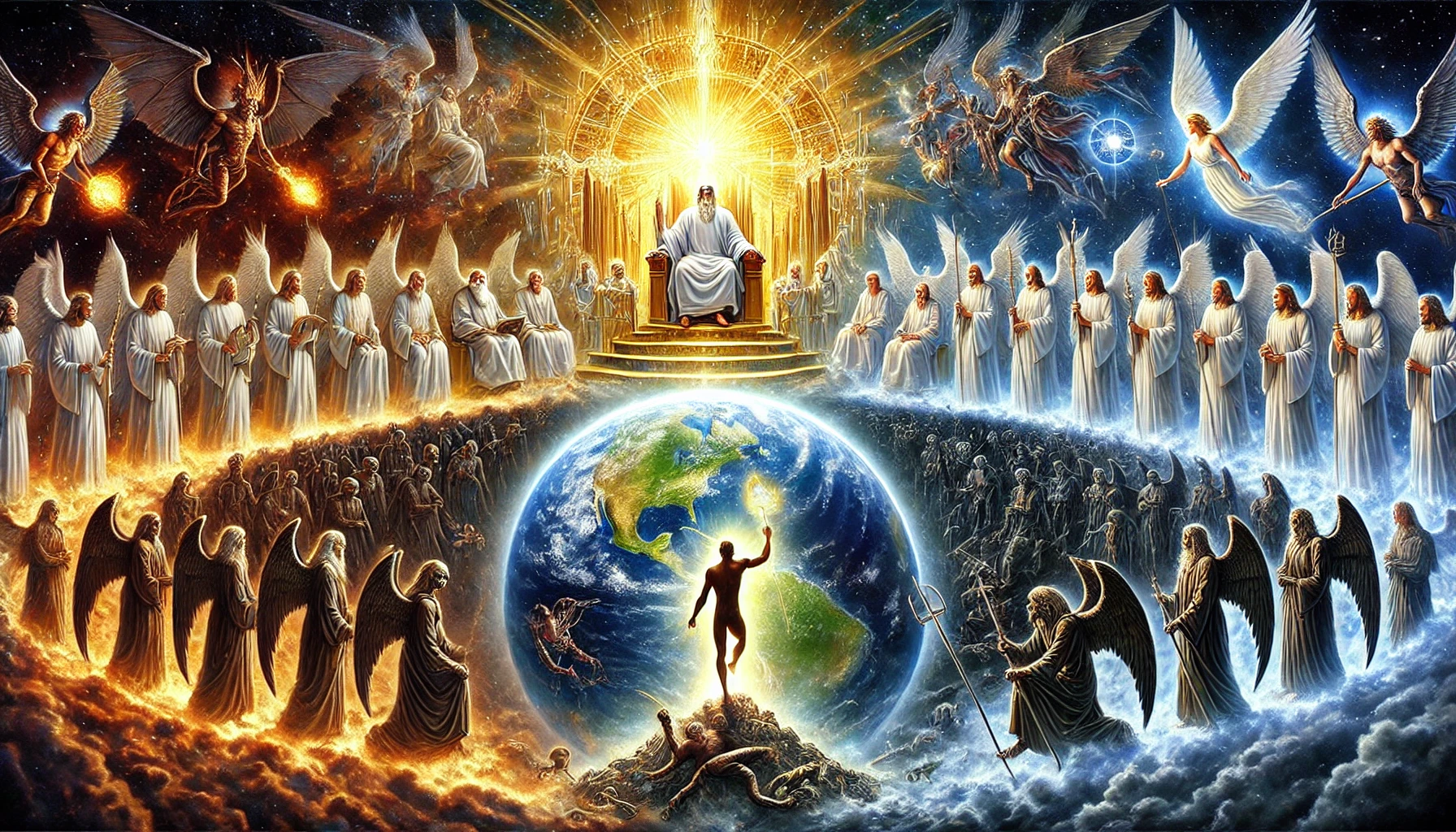
Have you ever felt that your struggles weren’t just physical or emotional but something deeper—something spiritual? Perhaps you’ve sensed an unseen battle playing out around you, leaving you searching for answers. For centuries, spiritual warfare has been a concept wrapped in mystery and debate, touching on the intersection of faith, resilience, and divine purpose.
As a believer and follower of Yeshua Hamashiach (Jesus the Messiah), my understanding of the spiritual realm is rooted in my personal walk of faith and my study of the King James Bible—first published in 1611 and revised in 1885. This version, widely regarded in Protestant traditions, excludes the Apocrypha, a collection of 14 books found in earlier editions. For context, the Catholic Bible includes 73 books, integrating seven of these additional texts.
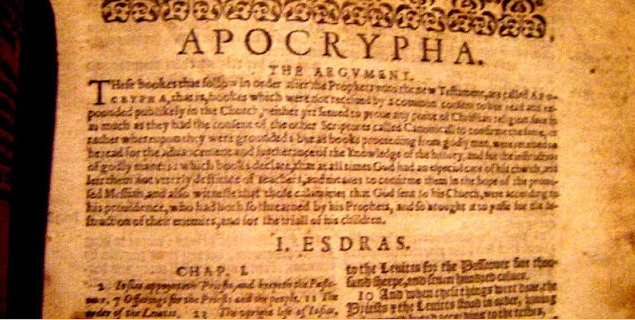














I firmly believe that, with the guidance of the HOLY SPIRIT, the 66 books of the King James Bible provide adequate wisdom and revelation for understanding GOD’S word. However, scripture also speaks of a time when knowledge will increase. Can we expect the integration of the Apocrypha into everyday biblical teachings?
This exploration draws from the richness of biblical scripture and personal reflection to shed light on the unseen battles shaping our lives. This article serves as a foundational discussion on spiritual warfare, laying the groundwork for future studies on this critical subject. It is one of several pillar posts that will guide deeper examinations into various aspects of spiritual battles, equipping readers with biblical insights and practical applications.
What is Spiritual Warfare?
To best understand spiritual warfare, we should first examine the definitions of spiritual and warfare individually, then analyze their significance from a biblical perspective. While the exact term “spiritual warfare” does not appear verbatim in the Bible, the concept is deeply woven throughout scripture. Interestingly, “spiritual warfare” is not listed as a compound word in standard dictionaries. Google’s AI, relying on Wikipedia, defines it as a Christian concept but does not explicitly identify Satan as God’s adversary. Instead, it frames the conflict as the Kingdom of God vs. the Kingdom of Darkness.

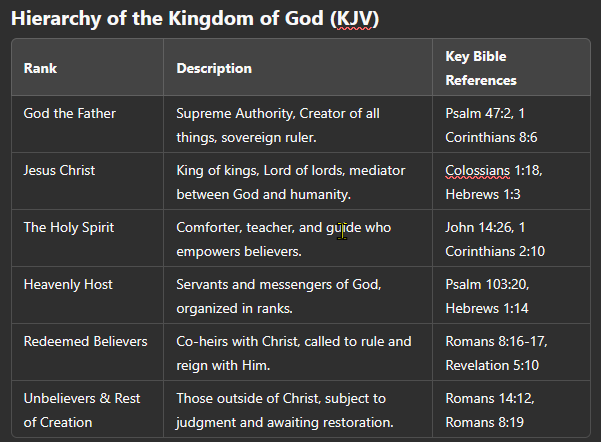
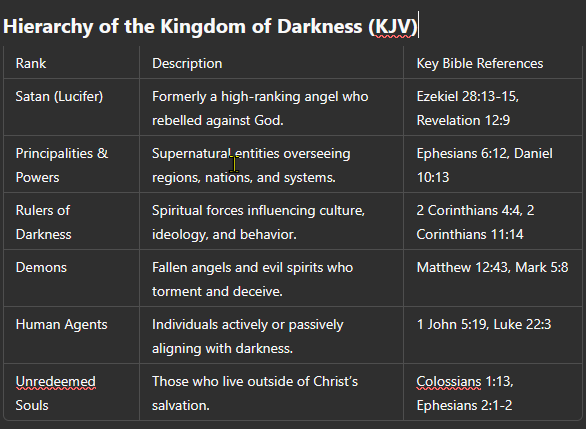
Spiritual warfare can be examined from two distinct battlefronts:
- The Kingdom of God vs. The Kingdom of Darkness – the overarching cosmic conflict.
- Mankind vs. The Serpent (Satan, Lucifer, the Devil) – the direct struggle humanity faces.
Although the ultimate battle is between the two kingdoms, it is crucial to recognize that this war began in heaven before Adam and Eve were created. God, in His supreme authority, allowed Michael, a high-ranking angel, to handle what could be described as “His lightweight,” delegating the task of casting out Lucifer.
Historical and Theological Context: Who’s at War?
Spiritual warfare refers to the ongoing battle in the spiritual realm between God’s Kingdom and the Kingdom of Darkness. However, before this battle unfolded on earth, it first took place in heaven. Scripture describes a war between Michael, the high-ranking archangel, and Lucifer—later known as the Great Dragon—who became prideful of his own majesty and beauty.
.
The Nature of the First Rebellion
Lucifer, a being of immense beauty, wisdom, and authority, was among the highest-ranking spiritual entities in God’s creation. Yet, despite his exalted position, pride took root in him. He sought to elevate himself above God, desiring a throne of his own, a dominion where he would rule rather than serve.
- Isaiah 14:13-14 (KJV) – “For thou hast said in thine heart, I will ascend into heaven, I will exalt my throne above the stars of God… I will be like the Most High.”
Lucifer’s rebellion was not a simple act of defiance, but an organized attempt to overthrow divine order. He convinced a third of the angels (Revelation 12:4) to join his cause, turning these once-glorious beings into what we now call fallen angels or demons

The Rebellion and Fall of Lucifer: The Origin of Spiritual Warfare
To truly grasp the depth of spiritual warfare, we must look beyond Earth—beyond human history itself—to its true origin: a celestial rebellion among spiritual beings in the heavens. This was not a mere battle between mortals, nor was it confined to the material world. Instead, it was a cosmic war, waged in the realm of divine and angelic beings, a conflict that eventually found its way to Earth, shaping the spiritual struggles humanity faces
A War Before Time: The First Revolt Against God
Many believers associate the beginning of spiritual warfare with the fall of man in the Garden of Eden, but scripture makes it clear that the battle began long before humanity was ever created. This war was first fought not between men, but among celestial beings—angels of great power and authority—long before Adam and Eve walked the Earth.
- Isaiah 14:12 (KJV) – “How art thou fallen from heaven, O Lucifer, son of the morning! how art thou cut down to the ground, which didst weaken the nations!”
- Ezekiel 28:12-17 (KJV) – This passage, while describing the King of Tyre, is often interpreted as a parallel to the fall of Lucifer, revealing a being of immense beauty and wisdom who was cast down due to pride.
- Revelation 12:7-9 (KJV) – “And there was war in heaven: Michael and his angels fought against the dragon; and the dragon fought and his angels, And prevailed not…”
These passages describe a cosmic insurrection, not a war of nations or earthly kings but a spiritual uprising in the highest realms of existence.
A War Beyond Earth: The First Cosmic Battle
The battle that ensued was not an earthly war but an interdimensional, celestial conflict beyond human comprehension. This war was not fought with swords, cannons, or human armies—it was a battle of divine power, spiritual authority, and the clash of cosmic forces beyond our physical reality.
Michael, the high-ranking archangel, led the charge against Lucifer and his followers. Unlike earthly battles, where armies clash on land or sea, this war was fought in the heavenly realms—off-planet, beyond time and space, in the courts of heaven itself.
- Revelation 12:7-9 (KJV) – “And there was war in heaven: Michael and his angels fought against the dragon; and the dragon fought and his angels, And prevailed not; neither was their place found any more in heaven. And the great dragon was cast out, that old serpent, called the Devil, and Satan, which deceiveth the whole world: he was cast out into the earth, and his angels were cast out with him.”
This moment shifted the battleground of spiritual warfare forever. While the war began in the heavenly realms, it did not end there—Lucifer and his fallen angels were cast down to Earth, bringing the conflict to humanity’s doorstep.
The Shift from the Heavens to Earth
This war, which originated beyond the stars, now had a new stage: Earth itself. The Garden of God, later known as the Garden of Eden, became the first earthly battlefield. Here, Satan—the adversary—sought to corrupt humanity, introducing deception, sin, and rebellion against God into the material world.
When Lucifer was expelled from the heavens, he did not lose his desire to rule. Instead, he sought to establish his dominion on Earth, among humanity, manipulating, deceiving, and drawing mankind away from the Creator. The spiritual warfare that had once been waged among celestial beings was now being fought within the hearts, minds, and souls of men.
This transition marks a significant distinction:
- The first war was fought among angels, in heaven, outside of time.
- The ongoing war now plays out on Earth, involving humanity as both the battlefield and the prize.
Satan’s ultimate goal? To corrupt, deceive, and usurp—not by brute force, as he attempted in heaven, but through subtlety, temptation, and spiritual deception
The Ongoing War and Its Endgame
Though spiritual warfare continues today, scripture promises that Satan’s defeat is certain. His rebellion failed in heaven, and though he now operates on Earth, his time is limited.
- Revelation 20:10 (KJV) – “And the devil that deceived them was cast into the lake of fire and brimstone… and shall be tormented day and night for ever and ever.”
This war began before human history—it predates time itself—but its conclusion is already determined. The same God who cast Lucifer out of heaven will bring final judgment, restoring divine order completely.
Why This Matters Today
Understanding the origin of spiritual warfare helps believers grasp the true scale of the battle we face today. It is not just about personal struggles, temptation, or resisting evil—it is part of a larger, ancient, cosmic conflict between divine forces that began before history itself.
As this article primarily focuses on spiritual warfare as it pertains to humanity, it is essential to recognize that this battle did not begin with us—but we are now fully engaged in it.
The question remains:
👉 How will you prepare for this war?
👉 Will you fight on the side of truth, armed with the power of God?
The battle continues. Are you ready?
Highlighting Key Biblical References to Spiritual Battles
To fully grasp the reality of spiritual warfare, we must examine its historical and theological roots. This section explores the broader context in which spiritual warfare has been discussed and interpreted throughout history. By understanding biblical narratives, theological evolution, and the cultural lenses through which these concepts have been viewed, we gain a deeper appreciation of their relevance in our modern spiritual lives.
The section Historical and Theological Context serves as a bridge between ancient biblical accounts and the ongoing struggles faced by believers today. By aligning history and faith, we not only enrich our understanding but also equip ourselves with timeless wisdom and practical tools for navigating spiritual warfare.
Biblical Passages on Spiritual Warfare
Genesis 3:15 – “And I will put enmity between thee and the woman, and between thy seed and her seed; it shall bruise thy head, and thou shalt bruise his heel.”
In this passage, God Himself establishes the spiritual battlefield, foretelling the ongoing struggle between the forces of righteousness and darkness. This verse is often seen as the first direct reference to the cosmic battle between God and Satan, culminating in Christ’s victory over sin and death.
Daniel 10:13 – “But the prince of the kingdom of Persia withstood me one and twenty days: but, lo, Michael, one of the chief princes, came to help me; and I remained there with the kings of Persia.”
The prince of the kingdom of Persia in this scripture is not a human ruler but a spiritual principality, a demonic force opposing God’s will. This ties directly to Ephesians 6:12, where Paul warns that believers are not fighting against flesh and blood but against unseen spiritual rulers.
The book of Daniel provides numerous examples of the spiritual realm interacting with the physical world—most notably in the story of Shadrach, Meshach, and Abednego (Daniel 3). However, Daniel 10:13 highlights the power of prayer and fasting, as Daniel’s intercession was so effective that God sent Michael, a Chief Prince (high-ranking angelic authority), to intervene.
Interestingly, while Daniel saw and interacted with the angelic messenger, those around him did not. They only sensed the presence through a tremor that caused them to hide. This suggests that Daniel had entered a higher level of spiritual awareness where he could perceive divine activity unseen by others.
Ephesians 6:12 – “For we wrestle not against flesh and blood, but against principalities, against powers, against the rulers of the darkness of this world, against spiritual wickedness in high places.”
I frequently reference this scripture because it sounds the alarm to the Kingdom of God, reminding believers that the battle is not against other people but against spiritual entities that seek to oppose God’s purposes. This passage underscores the necessity of recognizing the true nature of our spiritual struggles and preparing accordingly.
Early Church Perspectives on Spiritual Warfare
Understanding how early church leaders interpreted spiritual warfare provides further insight into its significance throughout Christian history. Two key figures—Saint Augustine of Hippo and Martin Luther—offered profound theological perspectives on the battle between good and evil.

Saint Augustine of Hippo (354–430 AD)
Saint Augustine, a theologian, philosopher, and bishop, was a foundational figure in early Christianity. His theological works, particularly Confessions and The City of God, have shaped Western Christian thought for centuries.
Regarding spiritual warfare, Augustine viewed it as both an internal struggle against sin and an external battle against demonic forces. In The City of God, he described demons as “false and deceitful mediators” whose goal is to divert Christians from their faith and obstruct their spiritual progress.
Additionally, Augustine contributed to the development of the Just War Theory, arguing that while Christians should personally seek peace, there are times when defense against evil is necessary. This concept highlights the balance between spiritual resistance and the pursuit of justice.
Summary of Augustine’s View on Spiritual Warfare:
- Internal battle – Resisting temptation and sin.
- External conflict – Opposing demonic influences.
- Just War Theory – Moral justification for resisting evil.

Martin Luther (1483–1546)
Martin Luther, the father of the Protestant Reformation, saw spiritual warfare as an ever-present reality in the life of a believer. He viewed Satan as an active adversary, constantly seeking to undermine faith and lead Christians into despair.
Luther believed that one of the greatest weapons against spiritual attack was faith in Christ and the power of God’s Word. He advised believers not to engage in arguments with the devil but instead to reject his lies and stand firm in faith. In his writings, he stated:
“Try as hard as you can to despise those thoughts which are induced by the devil… Laugh your adversary to scorn and ask who it is with whom you are talking.” (The Gospel Coalition)
Luther also acknowledged that physical and mental afflictions could sometimes be spiritual in nature, emphasizing that believers must rely on prayer, scripture, and faith to withstand these attacks. He wrote:
“For our bodies are always exposed to the attacks of Satan.” (Christian Training Online)
Summary of Luther’s View on Spiritual Warfare:
- Spiritual attacks are constant – The devil seeks to weaken believers.
- Faith is the key defense – Resist through steadfast belief in Christ.
- Scripture is the ultimate weapon – God’s Word refutes Satan’s lies.
These biblical accounts and theological insights demonstrate that spiritual warfare is not just an abstract concept—it is a real, ongoing battle that affects every believer. From the fall of man in Genesis to Daniel’s angelic encounters, from Ephesians 6 to the teachings of Augustine and Luther, we see a consistent theme of resistance, faith, and divine intervention.
By understanding scriptural truths and learning from church history, we can better equip ourselves for the spiritual battles we face today. The question remains: How do we, as modern believers, apply these lessons to our daily walk with God?
How Historical and Theological Insights Inform Modern Spiritual Practices
Modern spiritual practices are deeply rooted in historical and theological traditions. By examining the origins of various spiritual beliefs and rituals, individuals today can develop a deeper understanding of their faith, enhance personal growth, and make more informed choices on their spiritual journey. Below is a breakdown of how historical and theological insights shape contemporary spirituality.
Historical Foundations and Continuity
- Contextual Understanding: Historical insights help modern practitioners understand the origins of their spiritual traditions. Knowing the historical context behind sacred texts, rituals, and doctrines clarifies why certain practices exist.
- Example: The Christian practice of communion has roots in the Last Supper, a historically documented event reflecting ancient Jewish customs.
- Preserving Core Teachings: Historical knowledge ensures that core teachings remain intact while allowing reinterpretation to address contemporary challenges.
- Example: The early church’s emphasis on community and charity continues to influence modern Christian social justice efforts.
Theological Insights and Doctrinal Evolution
- Interpretation of Sacred Texts: Theology plays a crucial role in making ancient scriptures relevant to modern audiences. Over centuries, theologians have debated and refined interpretations of key passages.
- Example: Martin Luther’s theological insights during the Protestant Reformation reshaped Christian doctrine by emphasizing salvation through faith alone, a principle still central to many Protestant denominations.
- Ethical and Moral Guidance: Theological discussions on ethics, morality, and the nature of God continue to inform modern spiritual and moral decision-making.
- Example: Liberation theology, which emerged in Latin America, combines Christian theology with social justice, advocating for the poor and oppressed.
Rituals and Symbolism
- Adaptation of Ancient Rituals: Many modern rituals are adaptations of ancient practices infused with symbolic meaning drawn from historical and theological roots.
- Example: Meditation, central to Buddhism and other Eastern religions, has been adapted in modern secular contexts for mindfulness and mental health.
- Sacred Symbols: Symbols such as the cross, the white dove, and the Star of David carry historical and theological significance that deepens their meaning in contemporary worship.
Mysticism and Spiritual Experience
- Ancient Mystical Traditions: Historical mystical traditions continue to inspire seekers longing for deeper spiritual experiences.
- Examples: Christian mysticism (e.g., St. Teresa of Avila), Sufi practices in Islam, and Kabbalah in Judaism.
- Relevance of Theological Mysticism: These traditions offer frameworks for modern practices such as contemplative prayer, chanting, or ecstatic dance.
Social and Cultural Impact
- Cultural Context of Spirituality: Historical and theological insights reveal how spiritual practices both shape and are shaped by their cultural environments.
- Example: The African-American church, influenced by the historical experience of slavery and the theological emphasis on liberation, remains a cornerstone of African-American spirituality and social activism.
- Global Interconnectivity: Understanding the historical spread of religions fosters appreciation for the interconnectedness of global spiritual traditions.
- Example: The spread of Buddhism along the Silk Road illustrates how religions adapt and evolve across cultures.
Challenges and Critiques
- Critiquing Historical Practices: Historical insights can lead to critical reflections on past spiritual practices, prompting reform.
- Example: The historical role of the church in supporting colonialism has led some denominations to engage in reconciliation efforts today.
- Balancing Tradition and Modernity: Theological discussions often grapple with balancing ancient traditions with modern values, such as gender equality, environmental stewardship, and LGBTQ+ inclusion.
Practical Applications in Modern Spirituality
- Personal Spiritual Growth: Individuals can use historical and theological insights to deepen their understanding of sacred texts, participate more meaningfully in rituals, and explore diverse spiritual traditions.
- Interfaith Dialogue: Recognizing the commonalities and differences between religious traditions fosters respect, tolerance, and dialogue in increasingly pluralistic societies.
- Modern Movements and Innovations: Many new spiritual movements draw from historical and theological foundations while innovating to address contemporary concerns.
- Examples: Eco-theology, feminist theology, and the mindfulness movement integrate ancient wisdom with modern priorities.
Historical and theological insights serve as a bridge between ancient wisdom and contemporary spiritual practice. By understanding the origins of their beliefs and rituals, modern practitioners can engage with their spirituality in a more informed, meaningful, and transformative way. This synthesis of past and present allows spiritual traditions to remain vibrant, relevant, and responsive to the needs of today’s world.
Differences in Interpretation of Spiritual Warfare Across the Top 10 Largest Christian Denominations
Spiritual warfare is interpreted differently across various Christian denominations, often shaped by historical context, theological doctrines, and scriptural emphasis. Below is a summary of how the ten largest Christian denominations view spiritual warfare, including biblical references and historical connections.
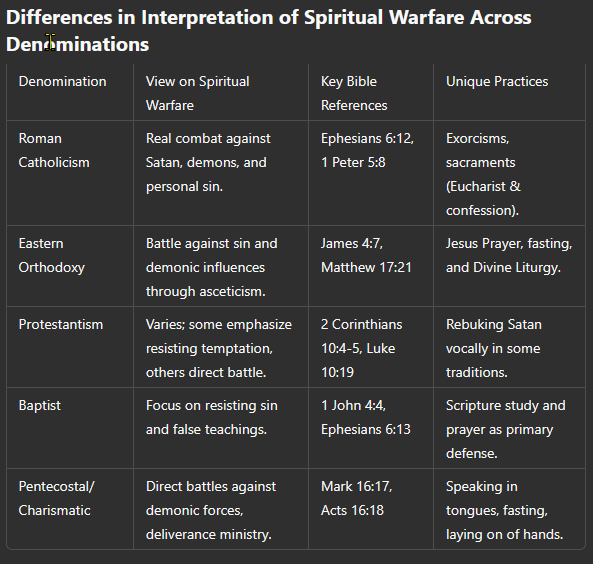
While all major Christian denominations acknowledge spiritual warfare, their interpretations and approaches differ significantly:
- Catholicism & Eastern Orthodoxy emphasize sacraments, tradition, and formalized exorcism as key defenses against spiritual forces.
- Mainline Protestant denominations (Baptist, Methodist, Lutheran, Anglican) focus primarily on resisting sin through faith, prayer, and scripture study rather than engaging in direct spiritual combat.
- Pentecostal & Charismatic traditions take a more active approach, incorporating deliverance ministry, fasting, and supernatural gifts such as speaking in tongues.
- Seventh-day Adventists & The Church of Jesus Christ of Latter-day Saints (Mormons) integrate eschatological perspectives, emphasizing Satan’s deception in the last days and spiritual authority in heavenly warfare.
These theological differences shape how believers approach spiritual struggles, influencing their prayers, worship practices, and daily spiritual disciplines. Regardless of denomination, the central truth remains: spiritual warfare is a reality, and faith, scripture, and divine guidance serve as the ultimate weapons in the battle against darkness.
How the King James Bible (1611) Influenced the Understanding of Spiritual Warfare

The King James Bible (1611) has played a foundational role in shaping Christian theology, particularly regarding spiritual warfare. Its structured translation, poetic language, and authoritative tone have made it a cornerstone for believers seeking to understand the battle between good and evil, God and Satan, and righteousness and darkness. This version of the Bible solidified core spiritual warfare concepts through its powerful terminology, emphasis on demonic forces, depiction of divine armor, influence on exorcism practices, and apocalyptic imagery.
Biblical Language and Hierarchical View of Demonic Opposition
One of the most striking contributions of the KJV to spiritual warfare is its language and terminology, which establish a clear hierarchical view of demonic opposition.
- Ephesians 6:12 (KJV) – “For we wrestle not against flesh and blood, but against principalities, against powers, against the rulers of the darkness of this world, against spiritual wickedness in high places.”
- This passage frames spiritual warfare as an organized, strategic conflict between the Kingdom of God and forces of darkness, influencing centuries of Christian doctrine on unseen spiritual forces.
Emphasis on Satan and Demonic Forces
The KJV also strengthens awareness of Satan’s rebellion and his ongoing influence in the world.
- Isaiah 14:12 (KJV) – “How art thou fallen from heaven, O Lucifer, son of the morning!”
- Ezekiel 28:12-17 (KJV) – Describes Satan’s pride and fall from heaven.
- Luke 10:19 (KJV) – “Behold, I give unto you power to tread on serpents and scorpions, and over all the power of the enemy.”
These passages have shaped Christian beliefs about spiritual warfare, reinforcing the idea that believers have spiritual authority over demonic forces through faith in Christ.
The Armor of God: A Battle Strategy
The KJV’s vivid depiction of the Armor of God in Ephesians 6:10-18 has significantly influenced spiritual warfare teachings.
- Ephesians 6:11 (KJV) – “Put on the whole armor of God, that ye may be able to stand against the wiles of the devil.”
- Spiritual Significance: The helmet of salvation, sword of the Spirit, and shield of faith provide a clear battle strategy for resisting the devil’s schemes.
- This passage has become deeply ingrained in Christian teachings, reinforcing the belief that believers are spiritual soldiers in an ongoing battle.
Influence on Exorcism and Deliverance Ministries
The KJV’s wording of key exorcism passages has laid the foundation for modern deliverance ministries that emphasize casting out demons.
- Mark 16:17 (KJV) – “In my name shall they cast out devils.”
- Acts 16:18 (KJV) – “I command thee in the name of Jesus Christ to come out of her.”
These scriptures validate the belief that Jesus granted authority to rebuke evil spirits, a core practice in Pentecostal and Charismatic traditions today. The KJV’s strong language in these verses reinforces the practical application of spiritual warfare through prayer, fasting, and spiritual authority.
Apocalyptic Imagery and the Final Spiritual Battle
The KJV’s dramatic and prophetic tone in Revelation has significantly influenced eschatological views on spiritual warfare.
- Revelation 12:7-9 (KJV) – “And there was war in heaven: Michael and his angels fought against the dragon; and the dragon fought and his angels.”
- Revelation 20:2 (KJV) – “And he laid hold on the dragon, that old serpent, which is the Devil, and Satan, and bound him a thousand years.”
These passages reinforce the belief that spiritual warfare is part of an ongoing cosmic battle, culminating in Christ’s return and Satan’s ultimate defeat. This apocalyptic vision has shaped how many believers interpret current spiritual struggles in the context of end-times prophecy.
The King James Bible (1611) continues to be a definitive source for understanding spiritual warfare. Through its clear terminology, structured battle imagery, and theological depth, it has influenced generations of Christians in their approach to prayer, faith, and resistance against spiritual darkness.
Whether facing daily struggles with temptation, praying for divine protection, or engaging in direct spiritual combat, the teachings of the KJV remain a guiding force in spiritual warfare doctrine and practice.
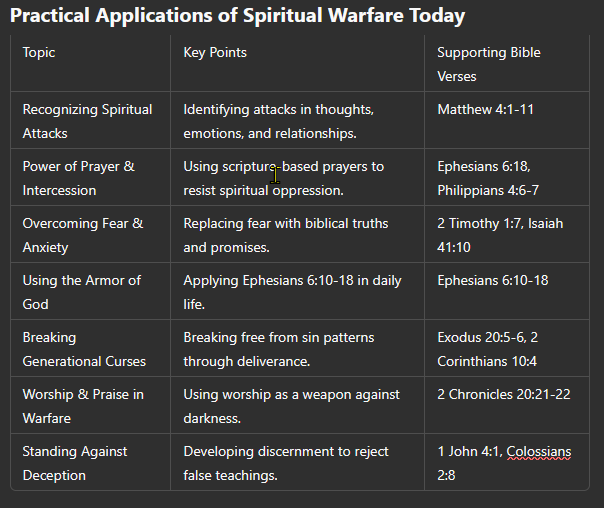
Summary & Reader Engagement
Spiritual warfare is a vast and deeply significant topic, with interpretations varying across denominations, historical periods, and theological perspectives. Throughout this article, we’ve explored:
✅ What Spiritual Warfare Is – Defining the battle between the Kingdom of God and the Kingdom of Darkness.
✅ Biblical Foundations – Key scriptures that shape our understanding of spiritual conflict.
✅ Historical & Theological Perspectives – How great thinkers like Augustine and Martin Luther framed spiritual warfare.
✅ Denominational Differences – How the top 10 Christian denominations interpret and engage in spiritual battles.
✅ The Influence of the King James Bible (1611) – How its language, authority, and imagery shaped spiritual warfare doctrine.
But this is just the beginning! 🚀
🔍 What’s Next?
We’ll be diving deeper into specific areas of spiritual warfare in upcoming articles, including:
- In-depth studies on deliverance ministries, fasting, and prayer as warfare tools.
- How modern culture and technology influence spiritual warfare today.
- Comparing biblical accounts of spiritual warfare with real-life testimonies.
Your Turn!
What insights stood out to you the most? Do you have personal experiences, theological perspectives, or questions about spiritual warfare? Drop your thoughts in the comments! Your input helps shape future content.
📢 Stay Connected
Be sure to check back for updates, follow for new posts, and join the discussion as we continue exploring this crucial spiritual topic together.
🔥 Spiritual warfare is real—how we engage in it matters. Let’s equip ourselves for the battle ahead!
My Reflections
I thoroughly enjoyed writing this first edition of “The Introduction to Spiritual Warfare.” This process has challenged and encouraged me to dive deeper into God’s Word, reminding me of how much I have yet to learn and how much more I need to study.
This article took longer to publish than I intended, partly due to my own spiritual battles—procrastination, fear of rejection, second-guessing my accuracy, and the weighty responsibility of handling God’s Word. I take this responsibility seriously, knowing that scripture warns against adding to or taking away from God’s commands:
Deuteronomy 4:2 (KJV) – “Ye shall not add unto the word which I command you, neither shall ye diminish ought from it, that ye may keep the commandments of the LORD your God which I command you.”
Revelation 22:18-19 (KJV) – “If any man shall add unto these things, God shall add unto him the plagues that are written in this book…”
These passages remind me of the importance of careful study and accurate teaching, ensuring that I handle God’s Word with reverence and integrity.
I’m excited to update this article in the near future, expanding on this pillar post as the foundation for deeper discussions on spiritual warfare. I also look forward to seeing which article will be the first to branch out from this one, as there is an infinite amount of material to explore on this subject.
Until then, God bless!
